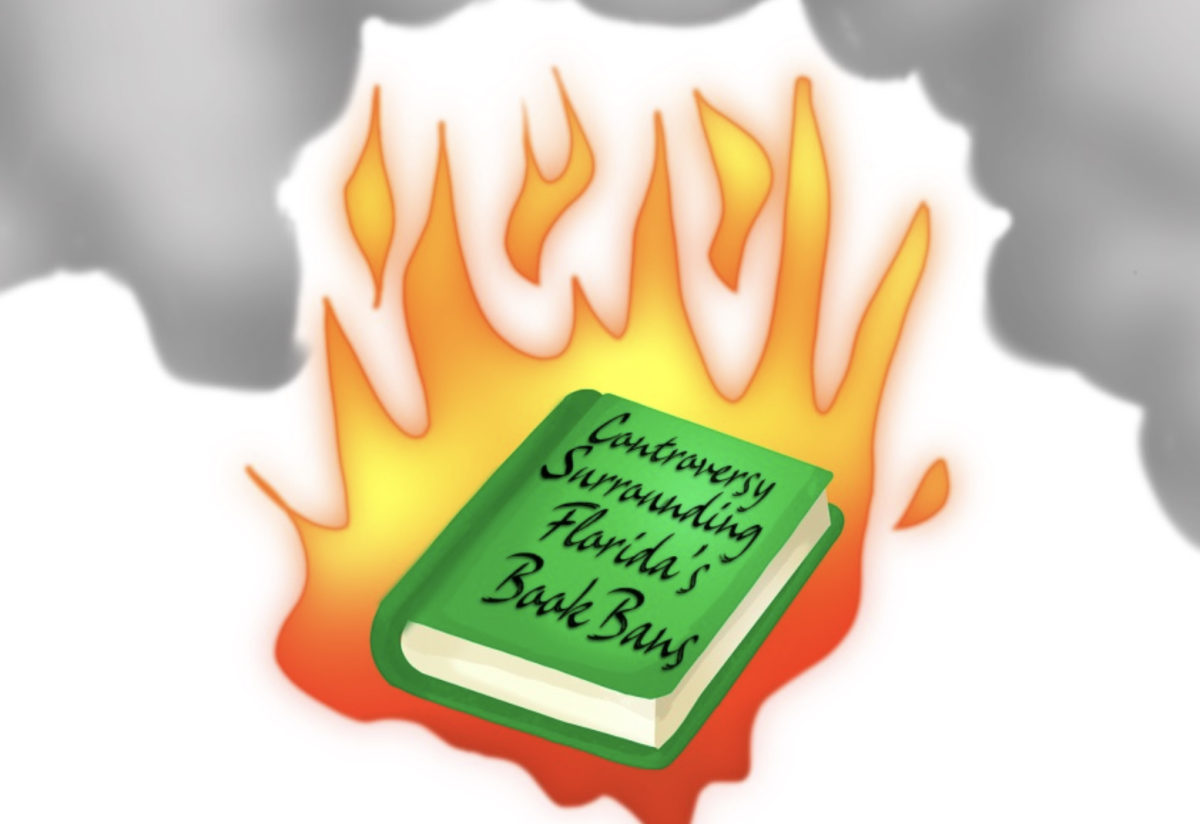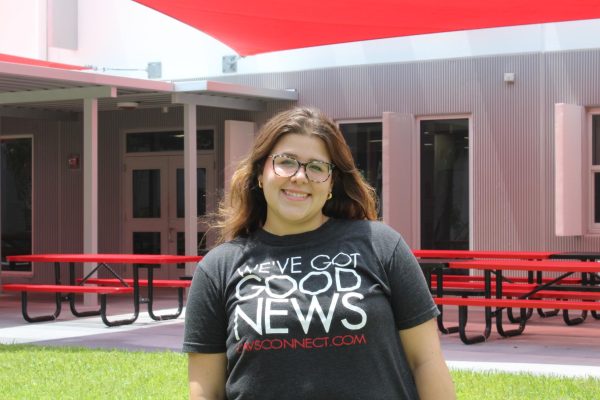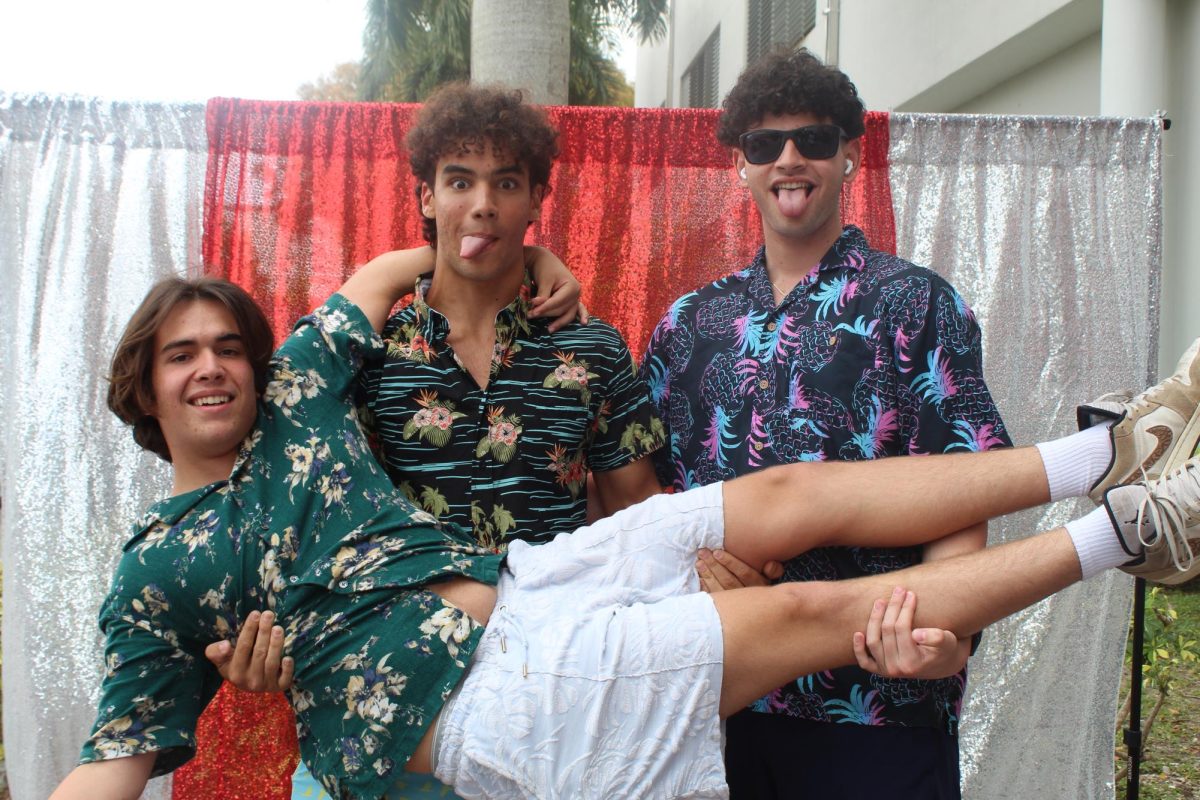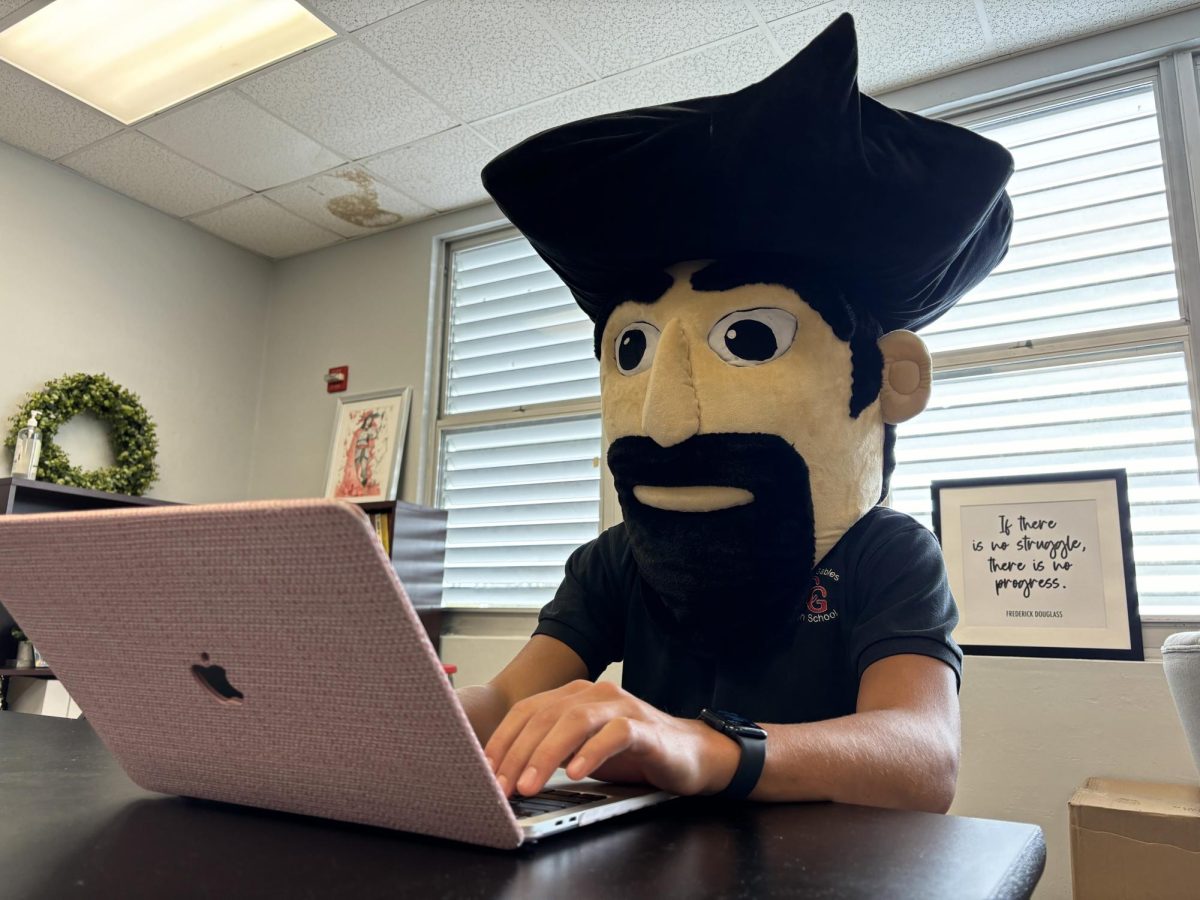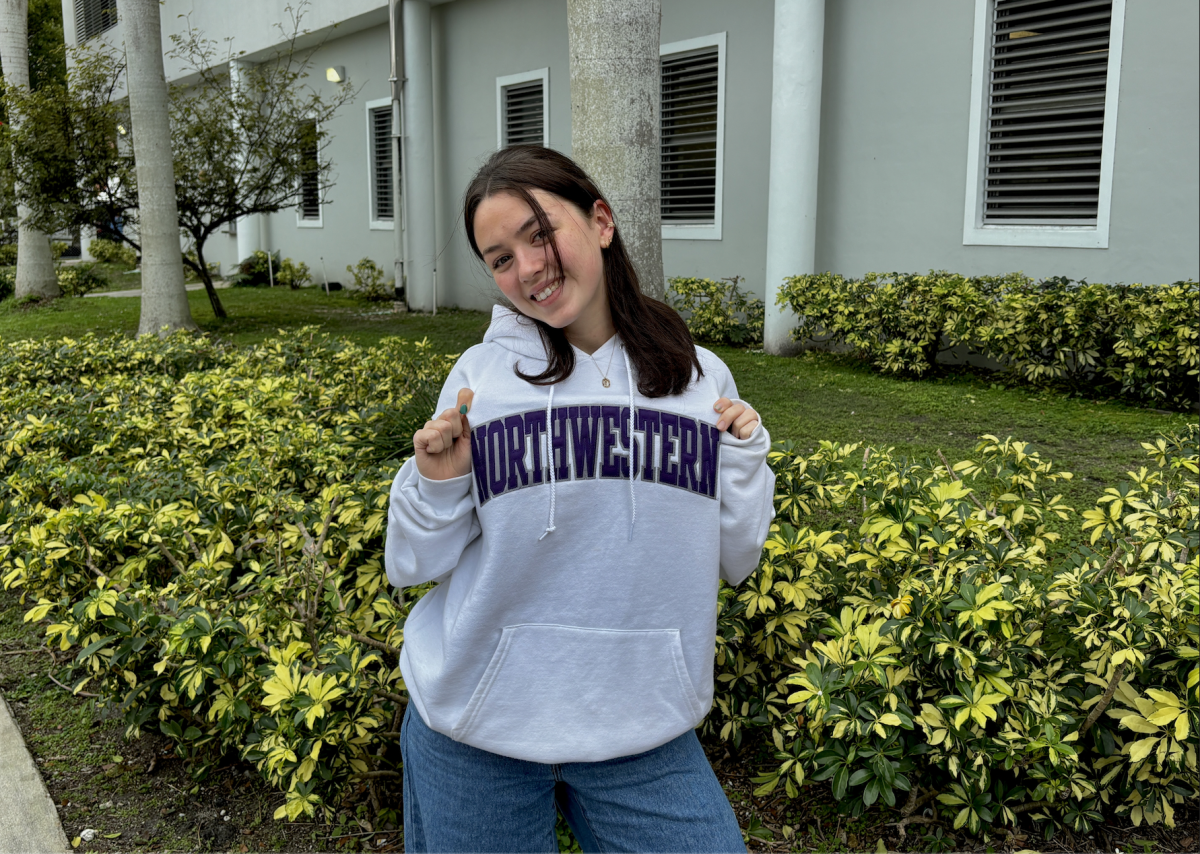Florida’s recent series of book bans, taking place from June 2022 to July 2023 in schools, has ignited a fiery national debate over freedom of expression, education and censorship. After signing the Curriculum Transparency Act last year, Florida Governor Ron DeSantis has taken another step towards fully implementing the act: banning books. This controversial move to restrict access to certain books has raised concerns amongst educators, parents and civil liberty advocates who argue that it undermines the intellectual freedom of students and the principles of having a well-rounded education.
The Florida Department of Education released a 16-page document in September, attributing the removals of books in the Florida education system to over 1,200 objections, made by parents of public school students and residents of Florida, all against the books on said list. The challenges sprouted from their concerns about the content of the books and how suitable they are for students to be exposed to. In some cases, books have been challenged due to political or ideological disagreements, concerns about age-appropriateness or objections on how certain topics are portrayed.
“I think DeSantis’ actions are unreasonable and illogical because students should have access to that information, even if it can be a little too much, just so that everyone can stay informed and ready to handle any situation,” junior Chiara Abad-Sanchez said.
The state legislature’s decision to ban specific books from school libraries and curricula has brought significant attention and condemnation from both sides of the political spectrum. When deciding whether books are eligible for the ban, topics like sexual content, offensive language, violence, racism, religious viewpoints and Lesbian, Gay, Bisexual, Transgender, Queer and/or questioning topics are looked for and frowned upon. Supporters of the bans argue that it is crucial to protect young minds from what they deem as inappropriate or offensive content, while opposers see them as a dangerous encroachment on academic freedom and an attempt to whitewash history and suppress diverse perspectives.
“I think that the book bans shouldn’t have been made because this limits what we are able to learn in school. Some of those topics should be taught to us because not all of us are able to truly be informed about most of these things. People can sometimes misuse the information that they hear online, but if they are well-informed by their teachers, they’ll be able to talk about these things and deal with them with confidence,” sophomore Francceska Gonzalez said.
These book bans have been long underway since DeSantis issued the “Don’t Say Gay” and “Don’t Say Period” bills, which also sparked significant public debate and made way to be part of a broader national conversation about the content that K-12 education should have. Adversaries to DeSantis’ actions have said that the governor’s history of educational censorship through legal action has given him more leeway and ability to go through with the passing of this new ban.
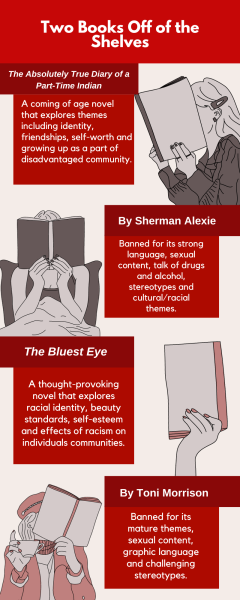
The list of 300+ banned books covers a long range of topics, from racial and LGBTQ+ issues to addressing complexities of American history. Books like The Absolutely True Diary of a Part-Time Indian by Sherman Alexie and The Bluest Eye by Toni Morrison are just two of the books taken off Florida shelves. Educators across the state argue that these books tackle essential themes, encourage critical thinking and promote empathy among the students. Teachers believe that these bans will stifle open dialogue and hinder students’ ability to engage with complex issues.
“I think that we’re living in an era where teachers can’t really candidly voice their opinions, which makes it difficult to fight what we believe in,” Ms. Valencia said.
In response to the uproar, DeSantis defended the bans, claiming that they decided to protect students from inappropriate content and indoctrination. Aligning with the governor’s views, supporters of the book bans have argued that schools should focus on traditional educational materials and prioritize values in line with their beliefs, instead of introducing more controversial and confusing topics.
“Banning some books can either be good or bad, but it all depends on the books. Some books may be too extreme to use for classroom discussions, while others might be just what some students need to hear since we are all growing more throughout the school year,” junior Hannah Beruman said.
States like Texas, Pennsylvania and Oklahoma have followed in Florida’s footsteps, banning multiple books as well. The controversy around censorship has also attracted attention from national organizations, such as the American Library Association and the American Civil Liberties Union, condemning the governor’s actions.
They both share views due to their commitment to safeguarding intellectual freedom and upholding the principles of democracy. Both organizations back the First Amendment’s protection of freedom of expression and the right to read without the government interfering. The ALA, in particular, has highlighted the importance of intellectual freedom and the harmful precedent that such bans can set through publishing reports, making public statements and supporting banned books week.
The Florida book bans have ignited a broader national conversation about the role of schools in teaching students about complex and controversial topics. As it continues to escalate, the bans raise the question of the importance of preserving intellectual freedom, promoting diverse perspectives and prioritizing an open dialogue in education. The outcome of this debate has potential to shape the future of curriculum decisions and academic freedom in schools nationwide.


